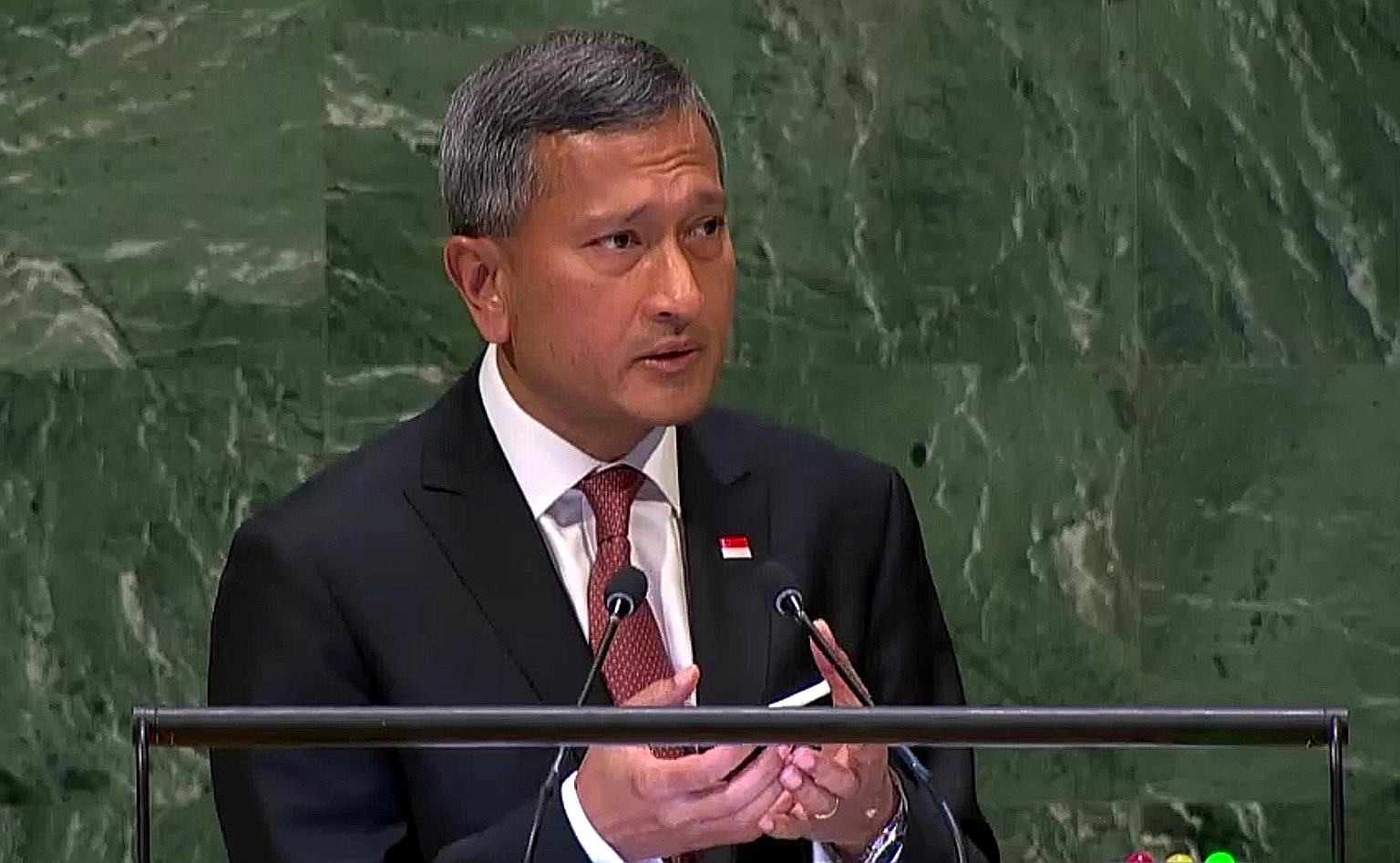UN members must improve multilateral system, urges Vivian
Rules-based multilateralism indispensable in securing peace, prosperity for people, he says
Sign up now: Get ST's newsletters delivered to your inbox

In his speech at the UN General Assembly in New York yesterday, Foreign Minister Vivian Balakrishnan said "there is a strong case to be made for doubling down on multilateralism, rather than retreating from it".
PHOTO: UNITED NATIONS
Amid a resurgence in isolationist, protectionist and xenophobic sentiments around the world, multilateralism needs to be defended and the United Nations strengthened to deal with complex global challenges, Singapore's Foreign Minister Vivian Balakrishnan said.
Speaking at the UN General Assembly in New York yesterday, he said UN members had a responsibility to work together, to improve and adapt the decades-long, painstakingly built multilateral system. Ultimately, a rules-based multilateral system is indispensable to secure peace and prosperity for people and the planet, he added.
Dr Balakrishnan spoke of today's "uncertain, volatile, disruptive times". "The digital revolution is increasingly disrupting the way we live, work, play, communicate, organise, mobilise our societies.
"Non-state actors and transboundary threats - terrorism, pandemics and climate change - remain a clear and present danger. Frontier issues such as artificial intelligence and cybercrime have leapt from the pages of science fiction into our daily lives. Our social cohesion is breaking down and all too often we operate in isolated social and political bubbles."
At the same time, the international order is being disrupted. He noted that since 1945, countries and regions had benefited from an open global system substantially underwritten by the United States. "But other powers are quite rightly beginning to assume a greater role in multiple spheres. This is a transition that has to be managed carefully, delicately," Dr Balakrishnan said.
"Multilateralism is at a crossroads and in fact is facing a significant threat," he said. "Whether in trade, security or dispute resolution, questions have arisen about whether the multilateral system can continue to deliver effective solutions to all the multitude of problems that we face as a world." And as a small, open and trade-dependent city state, "Singapore has watched this recent retreat from multilateralism with grave concern".
Dr Balakrishnan acknowledged that multilateralism may not be perfect and sometimes has been over-sold as a panacea for all problems.
But the scale and transboundary nature of current challenges demanded more cohesion and cooperation. "There is a strong case to be made for doubling down on multilateralism, rather than retreating from it," he said.
He also touched on the critical role of multilateralism in global trade and in governing cyberspace.
"Compliance with the agreed rules by all states is not only essential for global stability and the governing of the global commons, but is especially crucial for a small city state like Singapore. The principle that agreements will be respected and implemented is fundamental for our survival," he added.


